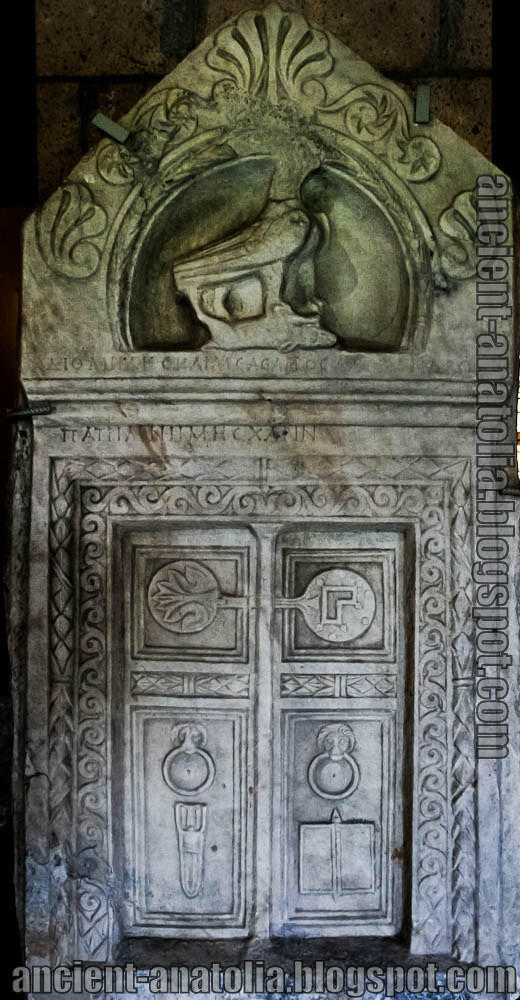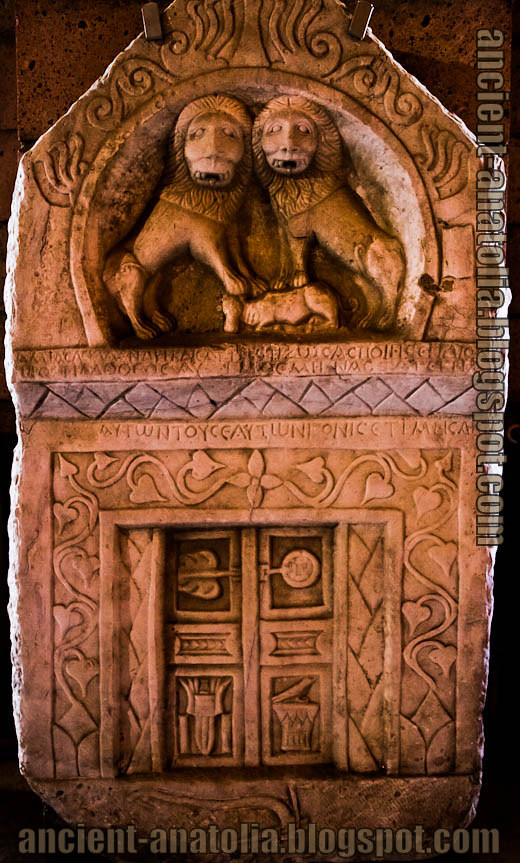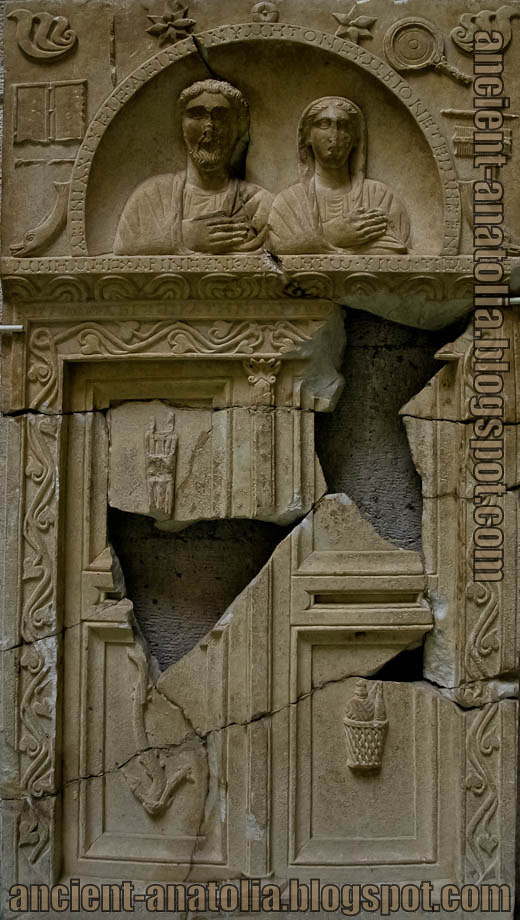
Ancient Roman doors to afterlife at Kütahya Museum of Archaeology, Turkey.
A false door is a common architectural element in the tombs of Ancient Egypt too. The ancient Egyptians believed that the false door was a threshold between the world of the living and the dead, and through which a deity or the spirit of the deceased could enter and exit. The false door was usually the focus of a tomb's offering chapel, where family members could place offerings for the deceased on a special offering slab placed in front of the door. A false door usually is carved from a single block of stone or plank of wood, and it was not meant to function as a normal door. Located in the center of the door is a flat panel, or niche, around which several pairs of door jambs are arranged, some convey the illusion of depth and a series of frames, a foyer, or a passageway.


More about this...